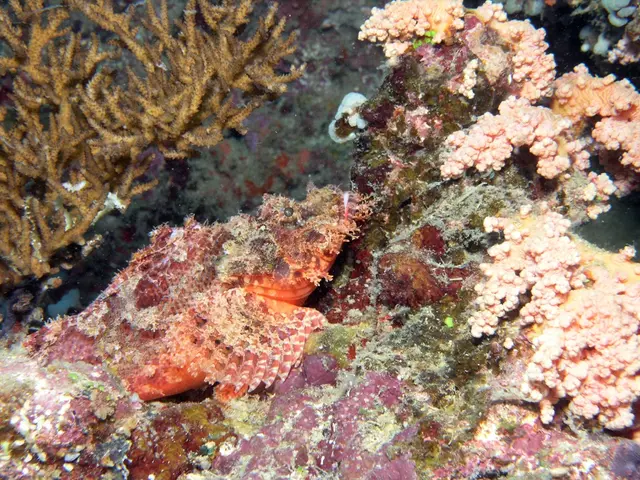Germany's Groundwater Threatened by Plant Protection Metabolites
Groundwater in Germany is facing a significant challenge with non-relevant metabolites (nrM) from plant protection products. The Federal Office of Consumer Protection and Food Safety (BVL) oversees the approval of these products, but recent findings show that 72% of groundwater stations have detected nrM, sometimes exceeding health-based orientation values.
The active substances metazachlor, S-metolachlor, chlorthalonil, dimethachlor, and trifluoroacetic acid (TFA) are particularly concerning, as they have a substantial impact on groundwater. Between 2017 and 2021, 3.6% of near-surface groundwater samples exceeded the legal limit of 0.1 micrograms per liter (μg/l) for active substances and relevant metabolites.
During the period from April to July, over 60% of investigated water sections had regulatory acceptable concentrations (RAK) exceeded for at least one plant protection active substance. This highlights a persistent issue, with plant protection agents in surface waters often being more polluted than anticipated during the approval process.
With approximately 30,000 metric tons (t) of active substance sold annually in German agriculture, and around 281 active substances used in approved plant protection products in 2022, the scale of the problem is significant. After rain, these agents can be flushed into adjacent streams, causing short-term peaks that affect aquatic organisms. Addressing this issue will require a concerted effort from regulators, farmers, and manufacturers to ensure the safe and sustainable use of plant protection products.
Read also:
- Wawa avian tests positive for West Nile disease
- Avian Flu Strikes Minnesota: Turkey Flock Tests Positive
- Former POW Maxim Butkewitsch Wins Václav Havel Prize for Human Rights Work
- Individuals suffering from ailments such as arthritis or asthma could potentially secure £30,000 in financial aid for home renovations at no cost to them.








